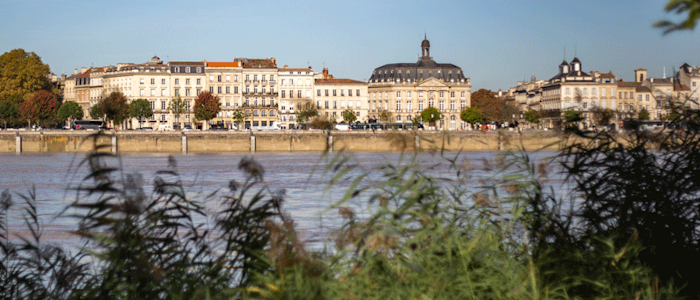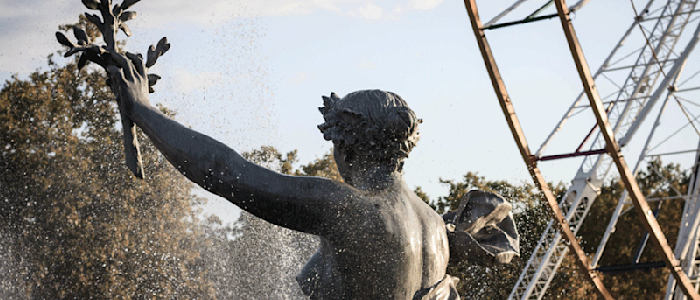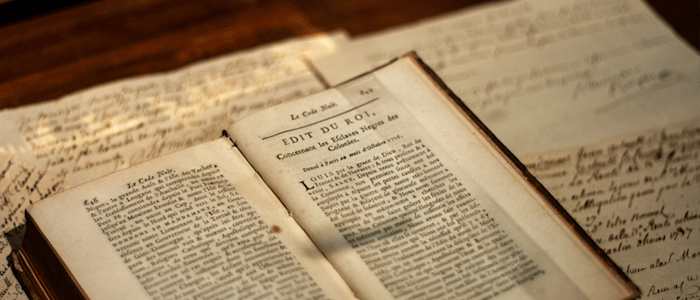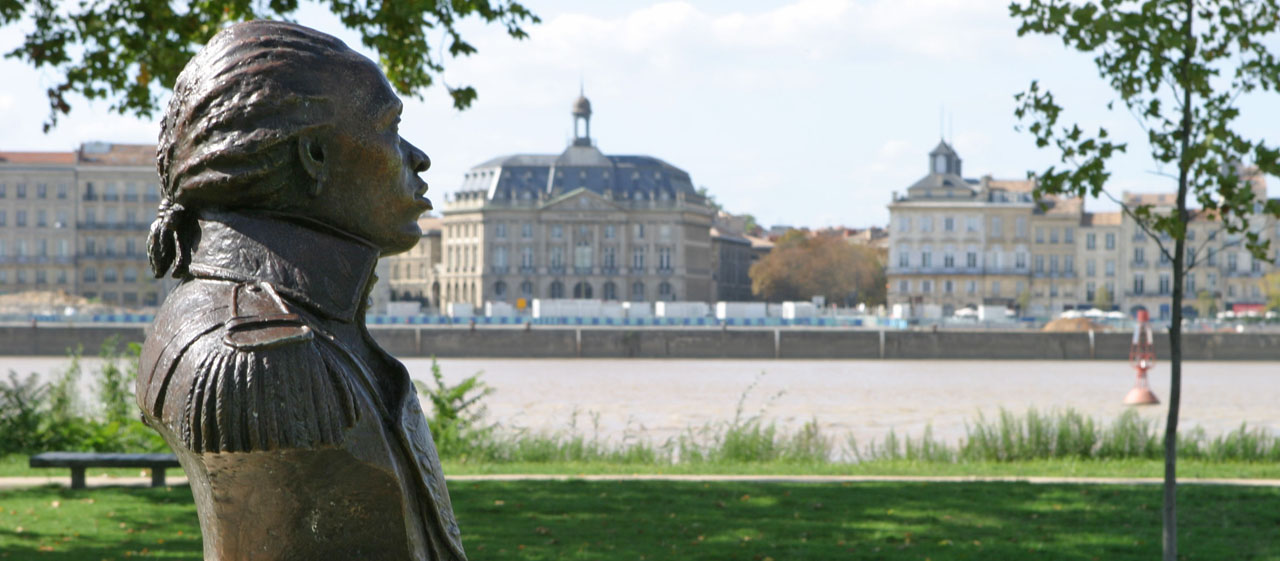Bordeaux, a colonial city? Of course!

During the Age of Enlightenment, the port of Bordeaux was one of the most affluent in Europe. Many Bordeaux natives lived in the Caribbean, especially in Saint-Domingue (now Haiti) where they produced and traded a host of commodities, sugar, spices, rum, etc.
Numerous traces of this activity are still to be found today within the city's walls. The association "Mémoires et Partages" proposes theme-based walks on the subject. One of these, "Chartrons créoles" invites to discover the rich, harsh history of triangular trade.
The tour comprises several stages that recall the life of those held captive, the life of Black people in Europe and the long journey towards abolition. All this, without ever leaving the Chartrons district, the city's former bread-basket.
Triangular trade

Start of the tour the foot of the Colonne des Girondins, on the huge Place des Quinconces. Karfa Diallo, creator and guide of this discovery trail, brings to life the Africans' conditions of travel, work and slavery through his real storytelling talents. Without ever omitting the history of the African princes who lived off captures and who sold off their prisoners to White Europeans in the 15th century, without ever dismissing the thousand-year-old existence of Arabic-Muslim slavery from the 7th century onwards, he explains how Europe became wealthy through triangular trade.
Bordeaux, the geographically-closest port to the Caribbean and Africa, was in all logic a strategic place for triangular trade.
In the gigantic Lainé warehouse, "the real colonial commodity warehouse", right next to the Place des Quinconces, shipowners would transport everything worth something from across the Atlantic.

By wandering through the streets around the area, you can still see traces of private distilleries and warehouses that belonged to Bordeaux dignitaries who became rich through this trade.

A stop-off at the public park close by is the occasion for recounting life in the plantations and to mention the existence, in this park, on the terraces, of the Musée de l’Institut colonial de Bordeaux, inaugurated in 1901. A stone's throw away, at the heart of the Chartrons district, Karfa Diallo tells you the history of coffee from Brazil, Saint-Dominique and Madagascar.

Then, the historian talks about the first slave revolts, Haiti, the first black republic following the only triumphant slave revolt in history and, across the way, Quai des Queyries, the statue paying tribute to the leader of the Haitian revolution, Toussaint Louverture. Finally, he tells you about the journey that led to the abolition of slavery in 1848.
First sailing vessel

The stroll ends on Quai des Chartrons, where so many ships unloaded their cargo transported from the colonies, with a halt in front of the commemorative plaque, placed there in 2006, which recalls the departure of the first armed slave trade vessel. It was the first time that Bordeaux actually acknowledged its past.
For the curious among you, a stop-off at the Musée d’Aquitaine completes this tour wonderfully well. A whole wing is dedicated to the slave trade and to Bordeaux's role in triangular trade.
The "Bordeaux créole" tour, mixing highly-instructive history and a stroll through the exquisite Chartrons district, is a precious moment of exchange for finding out more about Bordeaux's history!
Address book
💡 Discover "Mémoires et Partages"
Tour programme (price: €10). Booking required by mail or phone. Begins at 10am unless otherwise mentioned.
Individual, family and evening visits: daily, choice of times, prices on request.
5 place Camille-Jullian, 33000 Bordeaux. Tel: 09 54 34 78 63.
Website in French: http://memoiresetpartages.com and www.facebook.com/memoiresetpartages
Market : On the Quai des Chartrons, Sunday morning. Food-tasting market. From 8am to 3pm for on-site catering, sitting around big gourmet tables.
📘 Worth reading
- "Bordeaux port négrier", by Éric Saugera, published by Annales de la Révolution française (1997)
- the recent thesis by Julie Duprat, Ecole des Chartes, on Black minorities in Bordeaux in the 18th century, consultable on request from the Archives départementales de la Gironde
🛏️ Where to sleep
L’Esprit des Chartrons guesthouse
Large, elegantly-decorated rooms opening out onto a private wooden terrace, in a peaceful setting. From €110 per night, during the week, €120 at weekends.
17 bis rue Borie.
Tel: 06 82 20 20 67.
www.lespritdeschartrons.fr





